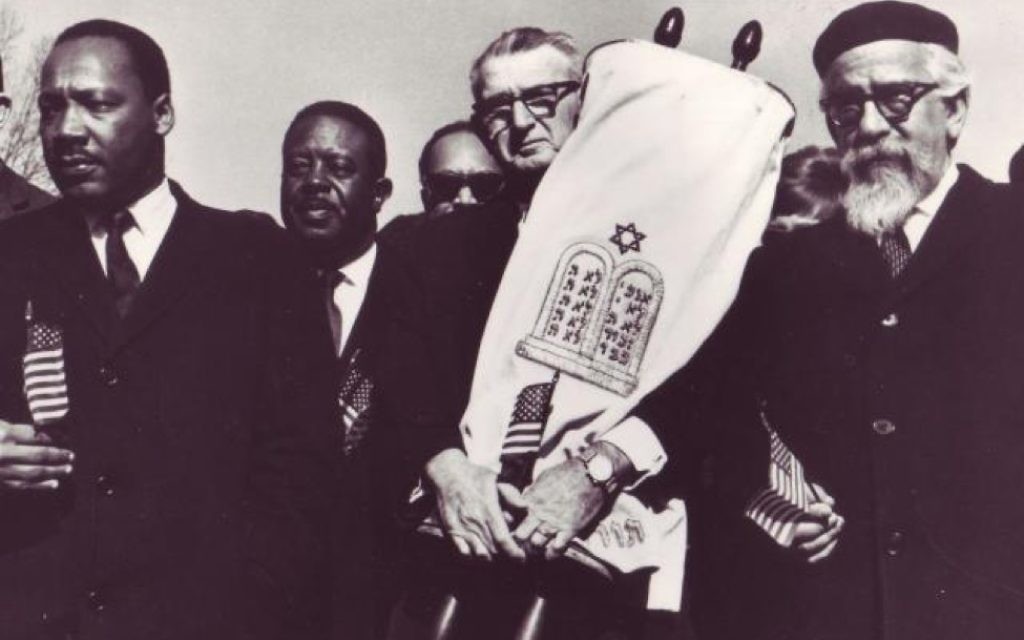Dreamers in the Face of a Nightmare
April serves as a reminder of greatness accomplished and goals that remain out of reach.

This Passover, as we anticipate the celebration of the 70th year since the birth of the modern state of Israel, a different milestone is marked in the United States. April 4 is 50 years since the day that Martin Luther King Jr. was assassinated on his hotel balcony in Memphis.
The legacy of the great preacher and modern prophet is almost always defined in terms of his rousing, extemporaneous words that turned the occasion of a blistering oration titled “Normalcy, Never Again” into what will always be referred to as the “I Have a Dream” speech.
In addition to the vivid evocation of children of different skin colors playing together in the very places still scorched by “vicious racism” and the core fairness of valuing in a person only what cannot be judged on the surface, Dr. King borrowed words from the biblical prophets.
Get The AJT Newsletter by email and never miss our top stories Free Sign Up
Like Isaiah, he invoked the day when “every valley shall be exalted, every hill and mountain shall be made low” in the name of justice and peace. So his dream went beyond the necessary work of uprooting the rules and customs that made obvious the degradation of black people in his day.
The words he spoke became an addendum to the self-evident declarations of equality and liberty that were signed when black people lived enslaved, some even to the men who wrote the original words and fought to bring about the nation founded upon them.
Dr. King’s dream was a transformation of a nation that even then, and more so now, was quick to forget the horrors perpetrated on black people only yesterday and all too slow to address the real and present injustices that are part and parcel of the lives of so many in our country for whom the nightmare is a reality and the dreams are just words echoing in empty places. A nightmare that felt even more stark April 4, 1968.
Like Dr. King, Theodor Herzl will always be known for his dreams. But he very much understood the nightmare, too. For Herzl, that nightmare was the looming shadow of anti-Semitism in Europe. A problem that he saw went far beyond the visceral outbreaks of violence against Jews in certain places and reached the very structure of a society that refused to accept Jews as true citizens and thus to accord them, formally and informally, equal treatment as human beings.
He envisioned dealing with this intractable antipathy by bringing Jews from around the world back to the land of our formation as a people and as a faith to achieve nothing less than a society that would transcend the ills of his day and be a model of human civilization.
While the celebration of Israel’s 70th birthday is a testament to the power of his dream, Herzl’s nightmare was to come true in the Holocaust in a way beyond his or any Jew’s imagination before the core of his vision could be fully realized.
Fifty years after the assassination of Martin Luther King Jr., I can’t help but feel that his hopeful, almost messianic pronouncements and deep personal commitment to moving forward have made it all the easier to lose sight of how committed he was to live in the real world, to recognize the urgency of taking action, not to help fulfill the promises of Scripture or our founding documents, but to shield the vulnerable from harm, feed people who are starving, and, as he did in his last days in Memphis, stand side by side with those who worked dangerous, undercompensated jobs like sanitation and help them declare “I am a man.”
As Jews, we know never to take for granted being able to assert our equality, liberty and humanity. Even as we cherish the dream, we know how important it is to never forget the nightmare.
In these days, as we dedicate ourselves first to those memories and then to the celebration of our dreams, may we make sure that we remember not only the great dreams and dreamers of our country, but also the real history, real consequences and real lives that are at stake in bringing them to life.
Rabbi Michael Bernstein is the spiritual leader of Congregation Gesher L’ Torah.




comments